Who would we be without the belief that our autistic kids are broken?
I believe I am a calm, loving, and joyful mother. I see my children as whole, beautiful, amazing people. I see them, I mean really see them. I don’t see them through a lens of deficits or as a list of symptoms or with a belief that they are inherently wrong. I know how it feels to be the child on the receiving end of that and I would never want that for my own children. And as an autistic mother, I am influenced every day by the hatred for my brain that is all around me in my community. I have faced hurdles in my life because of my disability and from having a parent who viewed me as faulty. And yet, my life feels happy. So, why is it so hard for others? That is what I ask myself as I consider how to improve life for families and children. Can someone who believes their child is inherently wrong in their unfiltered and natural ways of being, ever be in a truly respectful relationship with that child? Can they feel the connection to their children that I do to mine, and with it, the happiness that comes on its own? I suppose I cannot know for sure, but just like the parent who interprets their child disagreeing with them as “sass” or “disrespect”, my best guess is no.
So considering all this, where does the belief that parenting autistic children is some kind of special battle come from? Does it just come from the fear, skewing our interpretation of reality? I think so.
And while we could probably argue all day about the number of things wrong with our world, any of which could be fodder for arguing that autistic people got caused, wouldn’t it be better to instead treat all children with love and respect? Wouldn’t it be a great idea to assess the strengths and weaknesses of all children, autistic or not, and try to work at making a good home and community environment for them? Won’t all children benefit from a life full of opportunities and from supportive, nurturing caregivers? Can you imagine how much safer and more loving the lives of autistic children might look, if we challenged the fear that has become so popular in recent years, and if we thought seriously about whether there could be nothing wrong with them at all.
Ally is an unschooling mum in Western Australia. Her life with her five children involves messy faces, bouquets offered in grubby fists, beautiful drawings, and a family bed. Ally cares a lot about respecting all kids, including the disabled ones.


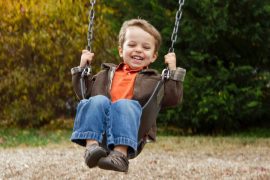
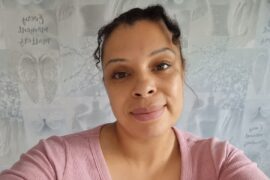
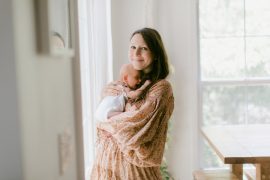



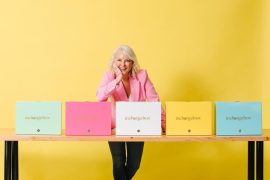
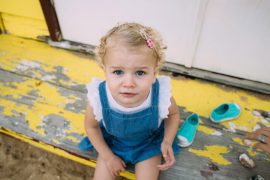

As a non-autistic mom of an incredible autistic son, I’d like your opinion on using the word disability. I don’t think my son is disabled, though some things are certainly harder for him. We talk about autism spectrum difference instead of disorder, saying disorder is from an outdated medical model. He’s only 6 and we love him exactly the way he is (as we do our NT children), and try to support helping them all be the best selves they can be, no matter what that looks like. Do you think there is any downside or danger to this approach?
Hi Meg, this is Ally replying to your comment. I am sorry it took me a while to see it here under the article! Hopefully my reply is noticed by you.
I subscribe to the Social Model of disability, which is why I use the word “disabled”. It is quite deliberate because I and other disabled people see ourselves through a lens of pride, culture, and also oppression. There is a movement #saytheword which you might be interested in for more information on this topic. The Social Model of disability is in opposition to the Medical Model which purports that a person “has a disability”, that there is something wrong with them, and that it’s basically too bad if they struggle in life. The Social Model in a simplistic sense believes that society and its lack of innate supports disables us by not being suitable for our needs. It is more like, we have been disabled by community inaccessibility rather than because we are faulty. So in this sense, I deliberately say that I am disabled and I say that with full respect for myself and for other disabled people.
I also believe in the Neurodiversity Paradigm specifically regarding being autistic, which is tied in to rejecting that being autistic is a disordered way of being. I mentioned Nick Walker in the article and he has another great post that you might enjoy which is called “Throw Away the Master’s Tools: Liberating Ourselves From the Pathology Paradigm” and I think you might be interested in this because of you already rejecting being autistic as a disordered way of being.
I do think there is a downside in an approach that does not seek out the opinions of disabled people about disability, very often. So I feel like it seems extremely respectful what you are doing for and with your son at present time, but there is always valuable knowledge to be gained from reading the words of autistic adults! We know so much about what it is like to grow up autistic, so I feel like a variety of experiences are just so important to read. Nick’s article that I mentioned has some links at the side which will take you to other autistic people if you are interested in that.
I do personally feel that “difference” can be quite loaded and not much different from saying “disordered” because it still assumes some kind of default way to be and hence some people are “different” from that – I believe we should get rid of an assumed default way of being in the first place. There is a really amazing infographic made my Erin Human called “Diversity is Beautiful” which could be another angle you might be interested in. We are all different from one another, and diversity is natural and beautiful among human beings.
Another resource about respectful parenting plus autism is Respectfully Connected, which I feel you might really enjoy.
Thank you for asking me for my opinion and I am excited for your son’s future with your respectful approach! Thank you for what you are doing for him; it makes me very happy.
Thank you for your article, I really benefited from it. I wanted to ask, as a mother of ASD and NT children, how do you find parenting them all? I want to parent my children as the individuals they are, but feelings of unfairness and treating them differently is creeping up in my house. Any suggestions?